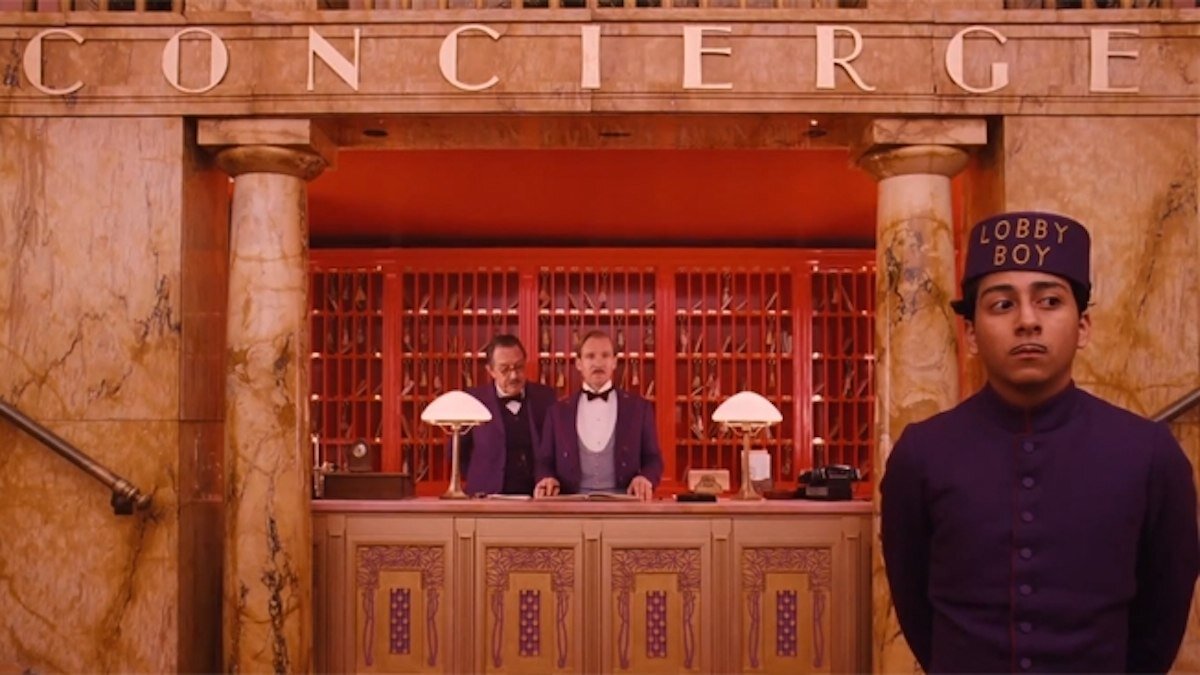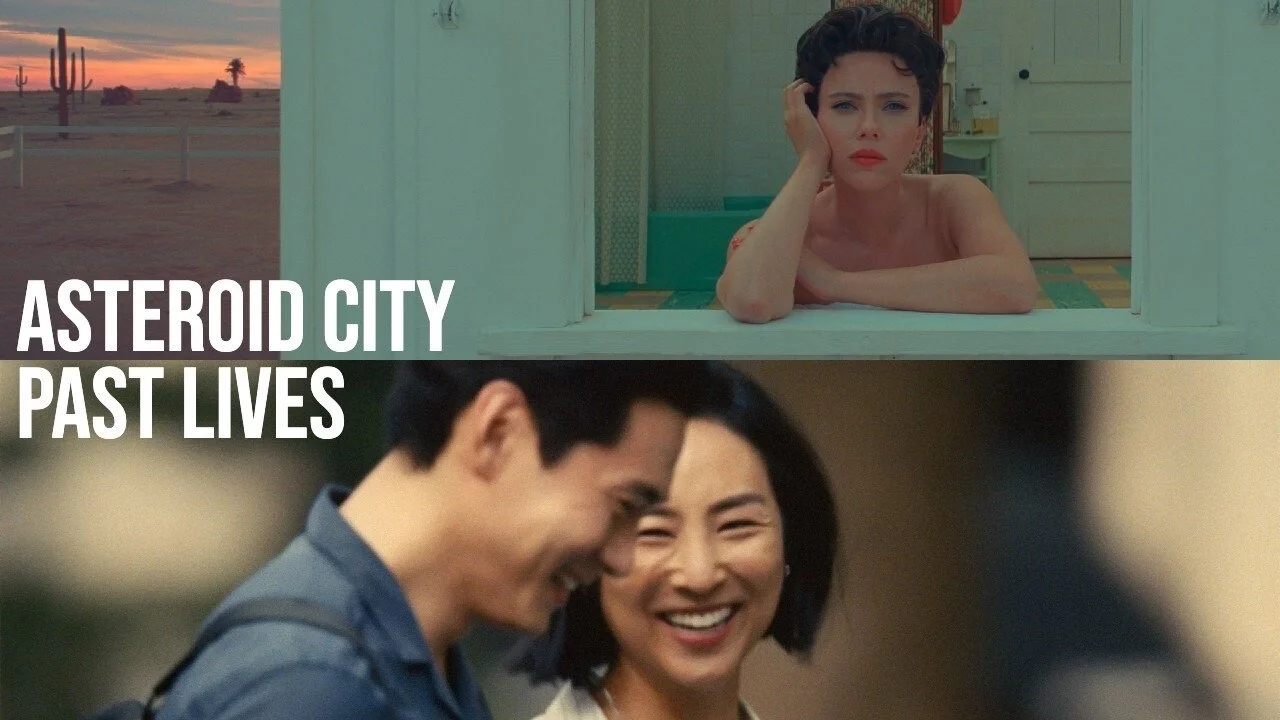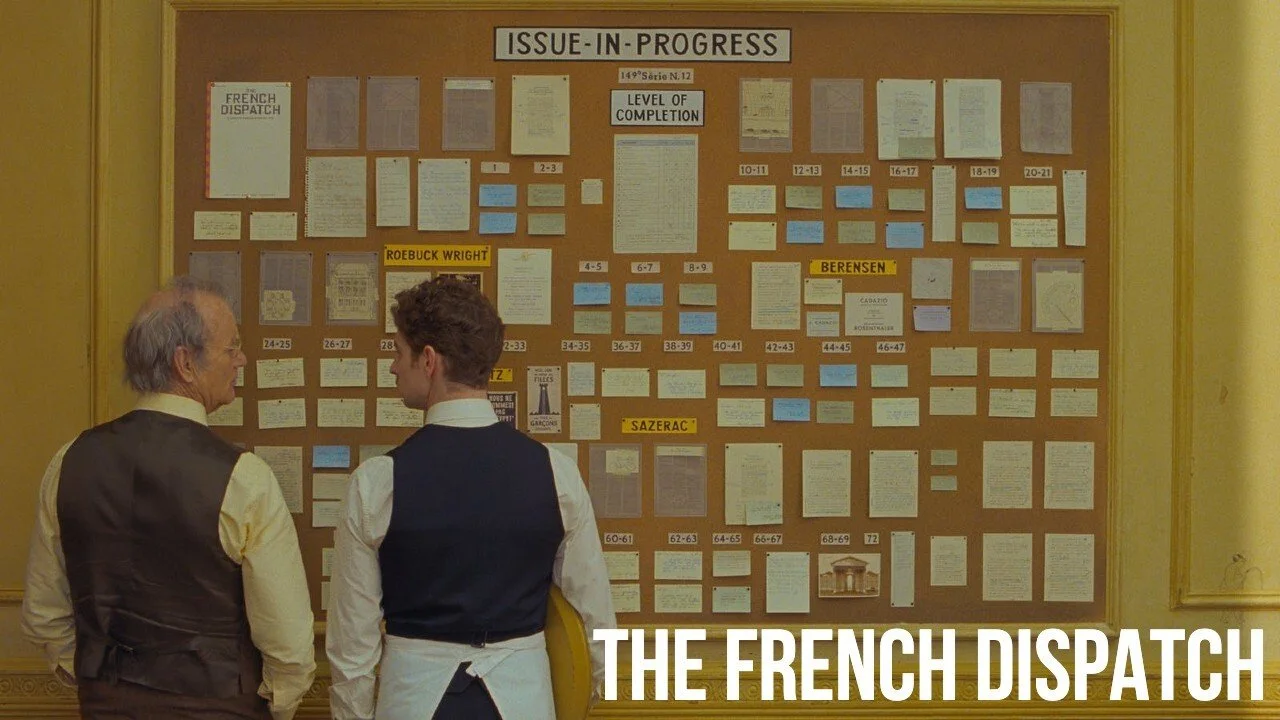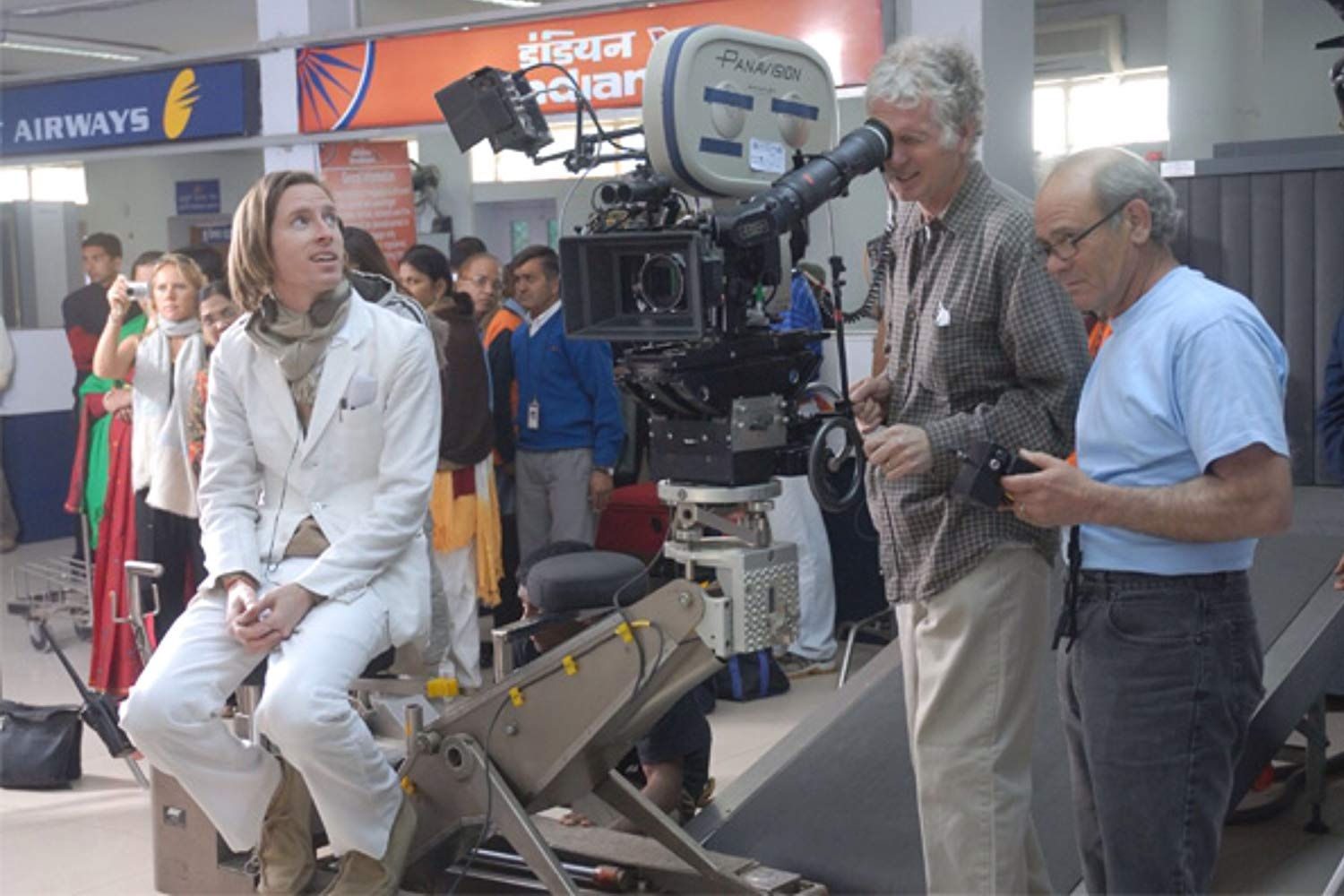The Grand Budapest Hotel
"Times have changed."
It's an elemental Wes Anderson lament. Max can't stay at Rushmore forever. Being a Tenenbaum doesn't mean what it used to. Steve can't keep cranking out adventure pics with Esteban. The Grand Budapest can't remain a sacred temple of order and gentility in a merciless, chaotic world. And I'm now at war with 2014 me. (I'm also at war with 2020 me because, while still clinging to "Tenenbaums" as my favorite Anderson movie, I have no idea how to order "Rushmore," "Moonrise Kingdom" and "Budapest.")
Truthfully though, re-reading my original Letterboxd notes, I can't be too hard on myself. I hear what I'm saying. When the story within a story within a story structure – I think my math is right? – folds even more inward and flashes back to Zero's courtship with Agatha, and M. Gustave goes to jail and the murdered widow / evil children / scary henchman / missing butler / inheritance dispute comes to the fore, the train doesn't hit a complete checkpoint halt but does ever so slightly lose steam. Why? Well, it occurs to me that, like Anderson's protagonists, I don't want to move on either. I just want to co-exist with these special people in their special places forever.
"Rushmore," for me, is still most thrilling before Max is expelled and the conflict with Herman erupts. As much as "Aquatic" – my lone Anderson outlier – may be a slice-of-life film, Zissou is on a mission to avenge the loss of his best friend and find, not kill, the jaguar shark. How do you neatly describe the plots of "Tenenbaums" and "Moonrise" to someone? Even acknowledging the 'find Sam and Suzy' / 'let's help them run off together' aspects of "Moonrise," Anderson so effectively layers the orchestral arrangement that you never isolate on an individual section or melody.
In 2014 I contrasted "Budapest" with Powell & Pressburger's "Colonel Blimp" – the influence of which is undeniable and explicit: "...the latter expertly blends artifice with absurd comedy and drama without ever sacrificing the underlying humanity, while the former only fleetingly pulls off the same trick."
"Budapest" may or may not be the achievement "Blimp" is, but both the humor and the pathos resonated this time. I never lost sight of the underlying humanity. In the desire for connection across decades and the always-in-flux-but-never-really-changing sweep of history that's implicit in the young student reading the Author's story, who was re-telling the story Zero imparted to him. In the way the older Zero stops at, "But we won't discuss Agatha," and Anderson lingers on a shot of Ronan for a few extra beats, the same way Zero is surely lingering on the bygone visage in his mind before restarting his story. In the bittersweetness of trying to co-exist forever with special people in your special places. –ABK














